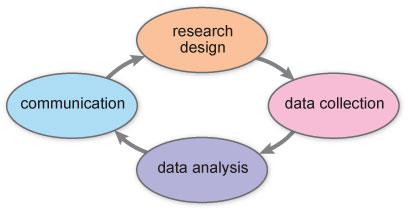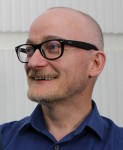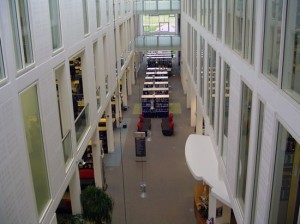In a recent post on the Guardian Science Policy blog I wrote, among other things, about the need for a vision for citizenship that moves science communication and engagement programmes beyond activities designed for ‘gifted and talented’ children and young people.
‘Cloned’ approaches to public engagement with research
In part, my concerns about this lack of diversity can be traced to research findings that showed how academics limit their framing of publics, purposes and processes when they plan their public engagement activities (Holliman and Jensen, 2009). My concerns were also born out of experience, working with teachers during my PhD research.
It is more than 20 years since Dolly the sheep was born. Next February it will be 20 years since she was announced to the world as the first mammal cloned from a somatic (adult) cell.
I studied media reporting of Dolly the sheep, exploring how news stories were constructed and represented as news (Holliman, 2004). I also explored how scientists and members of the public interpreted and contextualised the news of Dolly as a cloned mammal.
Children and young people were one of the publics I explored and I negotiated with local schools to gain access to students and teachers. It was striking to me at the time, and it has stayed with me, that the students I worked with during this research were deemed to be ‘not in education, employment or training’, or NEETs.
In other words, these young people had largely been abandoned by the education system. I was working with them as the school wanted to help with my research. (For the record, the students were impressively creative in responding to the news of Dolly.) However, the school did not want to take gifted and talented students off the curriculum.
It’s possible to argue with hindsight that I offered a very limited opportunity for those young people, now closing in on their 40s, to explore their ability to assess new research, and to develop skills in lifelong citizenship. Such an argument that would miss the bigger picture.
Put simply, the education system failed to prepare those students to be citizens capable of engaging with research. It follows that if we agree that citizens should have a voice in shaping and framing new knowledge, what opportunities do we offer them to develop skills and competencies in evaluating in research? Furthermore, from what age should these opportunities be offered?
Schools and universities working in partnership
The RCUK-funded Schools-University Partnership Initiative (SUPI) has demonstrated the potential to deliver skills and competencies in evaluating research.
The SUPI programme involves 12 partnerships across the UK. The approaches of the different partnerships are diverse. Overall, however, this initiative has shown that academics engaging with schools can contribute to efforts to genuinely widen participation, and to assess research, but that challenges still remain when it comes to embedding inclusivity and diversity (Holliman and Davies, 2015).
Our partnership is called ‘Engaging opportunities’. Through this partnership, the Open University has developed a strategic and operational partnership with the Denbigh Teaching School Alliance. Researchers and teachers have worked collaboratively to deliver shared objectives focused on the design, development and evaluation of strategic and structured mechanisms to facilitate direct and effective schools-university engagement.
Working collaboratively has allowed us to identify complementary needs. We found, for example, that Heads of Sixth Form were looking for additional support for Key Stage 5 pupils undertaking research through the Extended Project Qualification (EPQ).
Through work leading the Open University’s Public Engagement with Research Catalyst (Holliman et al., 2015), a different but complementary need was identified, i.e. that early career and postgraduate researchers are actively seeking opportunities for training in teaching and learning.

The Research Cycle. Source: S350 Evaluating Contemporary Science.
We (in particular, contributors include Gareth Davies, Trevor Collins and Vic Pearson) have addressed these complementary needs by working together to provide supplementary support for the EPQ to students from nine schools in Milton Keynes.
In so doing, we have worked closely with a number of teachers, notably Joe Kendall (Oakgrove), Penny Green (Lord Grey) and Damien Sharp (St. Paul’s), whilst supporting hundreds of students as they explore the research cycle, developing, investigating and reporting the findings from their studies.
In supporting students and researchers we have started to address the growing appetite for structured programmes that connect young people, authentic research and the citizenship agenda.
Notably, we have worked with staff (notably Amanda Closier) from the Open University’s Library to adapt digital and information literacy programmes to support EPQ students as they develop skills in accessing, analysing and responding to the diverse sources of information now available.
The projects developed by the students demonstrate the same levels of creativity that I encountered when researching student’s perceptions of Dolly. The only difference is that those earlier students are now old enough to be the parents of those I’m working with today.
As I noted in the post on the Guardian Science Policy blog, to paraphrase the old adage:
“Give a child a piece of information and they’ll be informed for a day; teach them how to access information in sophisticated ways and they’ll have the core skills for making informed decisions forever.”
Acknowledgements
This post discusses research and interventions developed through the Open University’s RCUK-funded School-University Partnership Initiative, ‘Engaging Opportunities‘, a partnership between the Open University and the Denbigh Teaching School Alliance.



